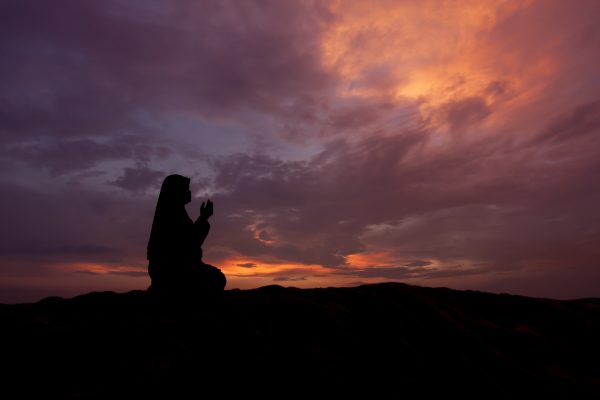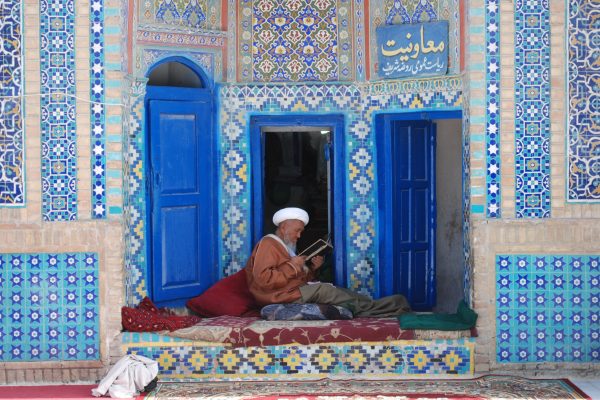As part of the lessons of Hijra, the victorious entrance of the Muslims into Makkah serves as a reminder that Allah’s promise of victory after perseverance and steadfastness is unquestionable.
As part of the lessons of Hijra, the victorious entrance of the Muslims into Makkah serves as a reminder that Allah’s promise of victory after perseverance and steadfastness is unquestionable.
In Arabic parlance, ‘Hijra’ literarily means to abandon or leave. It derives from the verb h-j-r. By extension, haajara with an elongated /haa/ implies being forced by a party to flee or fleeing from a territory of the polytheist into a territory where there are believers (see: Tafseer Sha’raawi Vols. 1&8).
In the more technical sense, Hijra is used to describe the forced emigration of Prophet Muhammad (Peace be Upon Him) from his birth town of Makkah to Yathrib (present-day Madinah) in the year 622 CE. The need for his emigration alongside many new Muslims was made apparent by the degrading persecution that he faced among the polytheist Arabs of Makkah.
As a remarkable event, the migration has been described as having political, social, and economic importance, not just for Muslims, but for others across the world.
As far as Islamic history is concerned, the Hijra represents a very important aspect. In fact, it can be described as one of the critical points in the consolidation of Islam as a political force and as a community.
The migration ensured that Muslims, who were otherwise scattered and weak numerically, would come together in a single place where they could form the nucleus of what was to become a state. As a new community with members from different Arab clans and elsewhere, the Hijra engendered a strong bond of brotherhood among new Muslims who would otherwise be at opposing ends.
As a community, the relationship between Muslims as a unit with other communities was also established. The prophet ensured a peaceful relationship among Muslims, Jews, and other groups that were present in the new state of Madinah. It was as a result of this migration that the Prophet introduced a constitutional basis known as the charter of Madina.
In the constitution, there was a strong basis for a just confederate arrangement where all the parties involved had a collective front and were required to work together regardless of their religions. In it, it is stated that:
“…for the Jews their religion, and for the Muslims theirs, be one client or patron. But whoever does wrong or commits treachery brings evil only on himself and his household…
“…And if any one fights against the people of this code, their (i.e., of the Jews and Muslims) mutual help shall come into operation, and there shall be friendly counsel and sincere behaviour between them; and faithfulness and no breach of covenant.
“…And this prescript shall not be of any avail to any oppressor or breaker of covenant. And one shall have security whether one goes out to a campaign or remains in Madina, or else it will be an oppression and breach of covenant.”
The constitution that was signed by all the parties involved established law and the rule of law as one of the important elements for a prosperous segmented community. Today, the rule of law has been encouraged as an important aspect of governance and social wellbeing. As a matter of fairness, those who went against the provisions of the constitution were punished according to the approved legal instrument.
The Islamic dating system or the Hijr calendar that was designed by Umar (May Allah be pleased with him) also has as its starting point, the Hijra day. Consequently, the Islamic calendar is known as the Hijri calendar.
Hijra has numerous lessons and relevance to our situations today and that of the generation to come. The lessons of the event will be difficult to explain exhaustively and as such, we can only take bits and pieces from it.
Some of the lessons, apart from its historical importance and its creativity for community development are also important for individuals. They range from teaching us to have sabr, selflessness, and tawakkul to being creatively interested in solving social problems.
Sabr or Patience
One of the most distinctive characteristics of those who emigrated from Makkah to Madina is their patience and forbearance. As a testament to their esteemed position, Allah says:
“And those who emigrated for [the cause of] God after they had been wronged – We will surely settle them in this world in a good place; but the reward of the Hereafter is greater, if only they could know” (Quran 16:41).
In another aayah, it is said that: “Then, indeed your Lord, to those who emigrated after they had been compelled [to renounce their religion] and thereafter fought [for the cause of God] and were patient – indeed, your Lord, after that, is Forgiving and Merciful” (Quran 16:110).
Today, as ever, the importance of Sabr as we navigate our daily lives can not be underestimated whether in the face of the Islamophobic prejudice that comes with wearing the hijab for Muslim women or in other areas.
Taking Care of the Refugees
The Hijra shows us that as Muslims, we should always try to take care of the needs of others especially those who are displaced by wars or other crises. As exemplified in the relationship between the ansaar (the host community) and the muhaajiruun (the refugees), selflessness for the sake of Allah is an important part of the Islamic faith and tradition.
Those who hosted the displaced migrant and welcomed them into their homes have gone down in history as the helpers or the ansaar due to their selflessness. In reference to their deeds, the Quran states: “And let not those of virtue among you and wealth swear not to give [aid] to their relatives and the needy and the emigrants for the cause of God, and let them pardon and overlook. Would you not like that God should forgive you? And God is Forgiving and Merciful” (Quran 24:22).
In another aayah, it is stated that:
“And [also for] those who were settled in al-Medinah and [adopted] the faith before them. They love those who emigrated to them and find not any want in their breasts of what the emigrants were given but give [them] preference over themselves, even though they are in privation. And whoever is protected from the stinginess of his soul – it is those who will be the successful” (Quran 59:9).
Reaching out to help refugees remains one of the enduring lessons of the Hijra. At the end of the year 2021, according to UNICEF, there are 82.4 million forcibly displaced people worldwide.
As Muslims, it is part of our obligations to help in different ways either by volunteering to host them, contribute materially towards them or help spread awareness to others to help them. As part of our faith, we can also pray that Allah grants them ease.
Harnessing Divergent Views
Another important lesson in the Hijra experience is in one of the contributions of Salmaan al Faris (-Roozbeh is his Persian name). His suggestion of digging a trench around Medina – a technique that was common among military experts of Sassanian origin proved effective. Despite his non-Arab origin, his exposure and experiences were instrumental and the prophet (Peace Be Upon Him) allowed him to express his ideas.
This demonstrates that all forms of knowledge and sciences are useful and that a community will thrive better when it allows for cross-pollination of ideas by people from varying backgrounds regardless of ethnicities or skin pigments.
Allah Does not Forget His Promise
Although the Hijra is a significant event on its own and the conquest of Makkah is a different event, the latter can be seen as completing a cycle that started with the former. The befitting end to the forced emigration of Muslims can be seen in the victorious entrance into the city of Makkah by Muslims after a series of events.
As part of the lessons of Hijra, the victorious entrance of the Muslims into Makkah serves as a reminder that Allah’s promise of victory after perseverance and steadfastness is unquestionable. In the Quran, it is stated that:
“When comes the Help of Allah [to you, O Muhammad (Peace be upon him) against your enemies] and the conquest (of Makkah), And you see that the people enter Allah’s religion (Islam) in crowds, So glorify the Praises of your Lord, and ask for His Forgiveness. Verily, He is the One Who accepts the repentance and forgives” (Surah An-Nasr 110:1-3).
The Spiritual Aspect of Hijra
Another important aspect of Hijra is its symbolic position in Islam. While the historical Hijra has ended and Muslims, in most countries are able to practice the religion almost everywhere today without open persecution on the same scale as that of Makkah, the spiritual aspects to it remain.
In a hadith from the prophet, it is related that:
“Abdullah ibn Amr reported: A man asked, “O Messenger of Allah, which emigration is best?” The Messenger of Allah, peace and blessings be upon him, said, “To emigrate away from that which Allah disapproves…” Musnad Aḥmad 6774.





